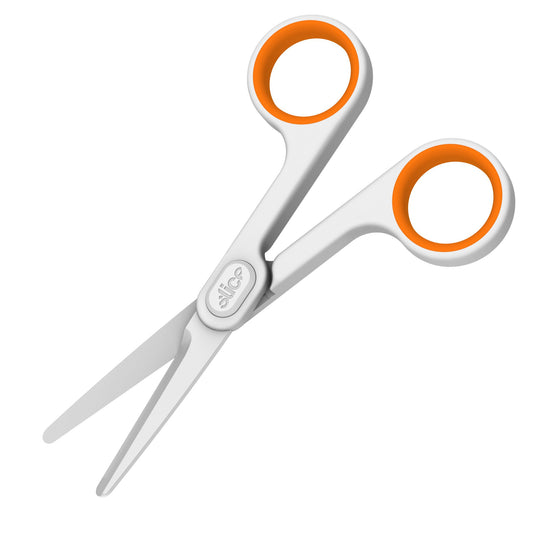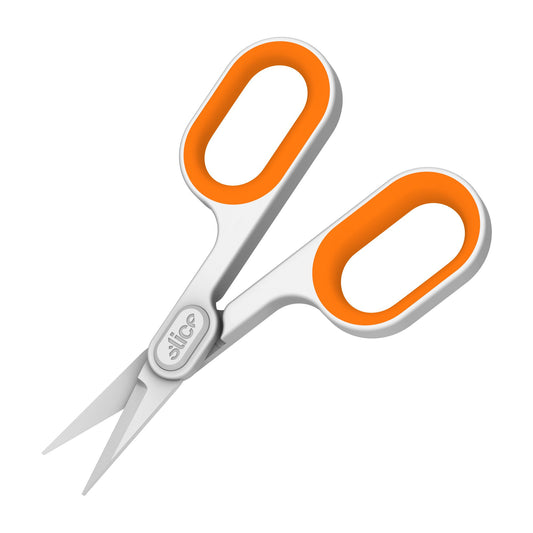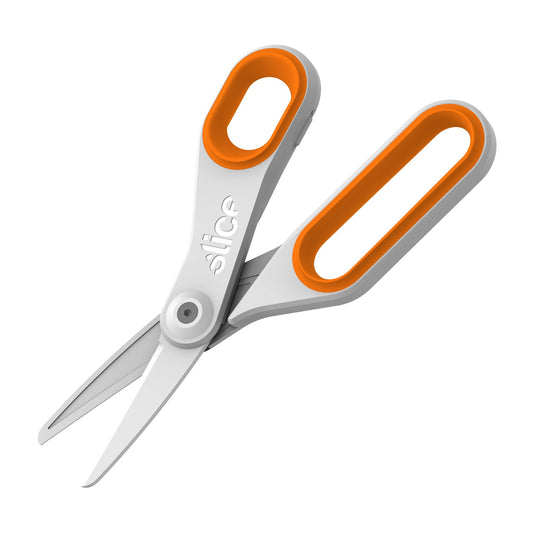SKU #10595
Self-Opening Scissors
Are you on the hunt for a safer alternative to traditional scissors? Do you wish you had scissors that worked with you and not against you? Enter the Slice® Self-Opening Scissors - a tool with a finger-friendly® edge that cuts everything but you. These self-opening scissors are perfect for fiber artists and industrial tailors.
The Slice Self-Opening Scissors revolutionize the cutting process by appealing to anyone with dexterity challenges, arthritis, or hand weakness. The self-opening function decreases the risk of hand fatigue and overall muscle effort. Designed to be lightweight and portable, these scissors are easy to wield and use for long periods, allowing you to make seamless, quick cuts.
From cutting tape to snipping thread, Slice makes people and places safer. Learn more below.
- Safer than traditional scissors
- Comes with a safety cap to protect you when not in use
- 100% zirconium oxide blade that never rusts
- Blade lasts on average 11.2x longer than metal blades
- Easy-to-use ambidextrous design
Great for:
- Trimming bonzai trees and snipping culinary herbs
- Cutting very thin wire
- Snipping thread
Product Specifications
Product Specifications
Cutting Depth:
Material: PA6+50%GF, PP, stainless steel, zirconium oxide
Dimensions: L x W x H
Weight: 0.08 lb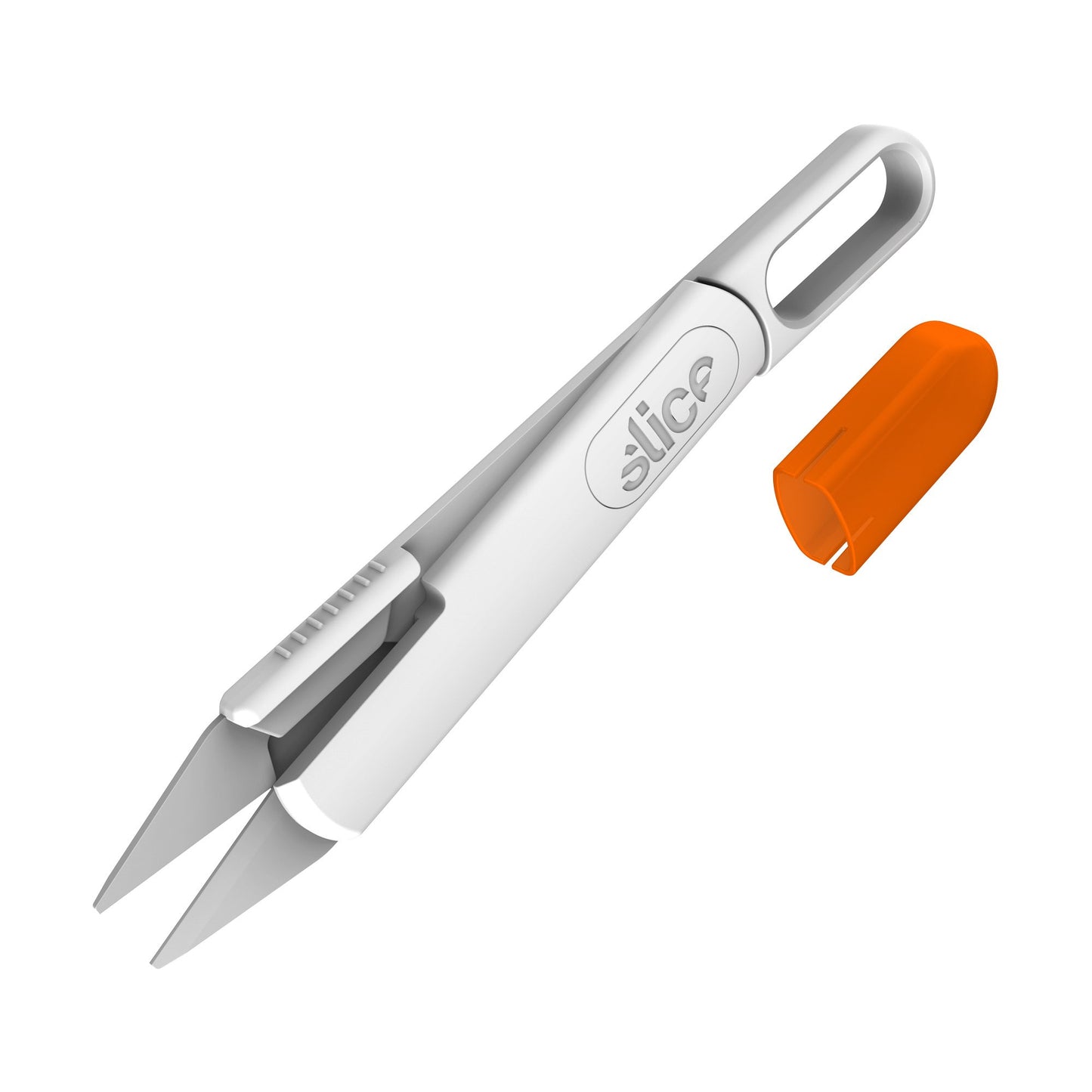
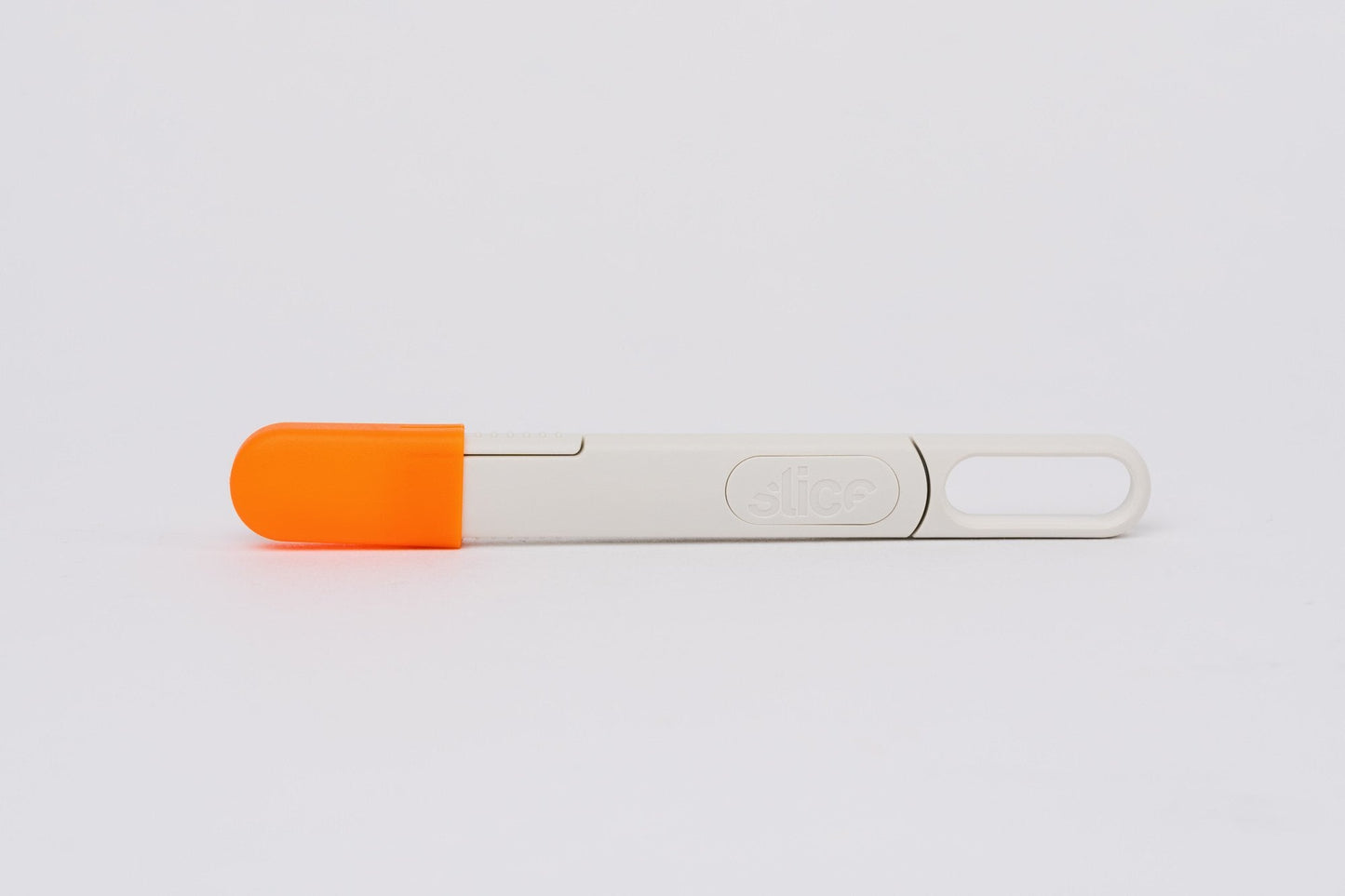
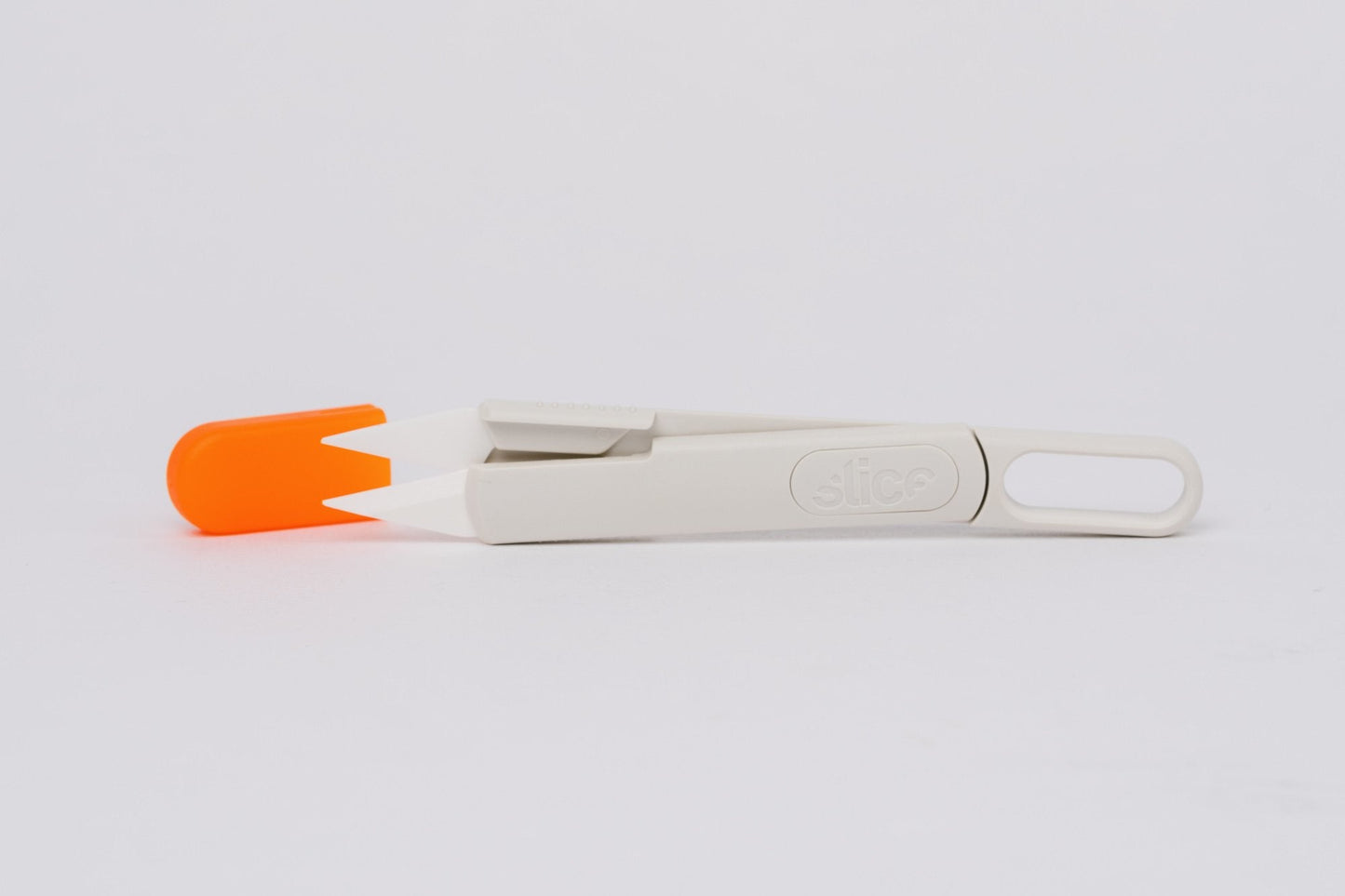
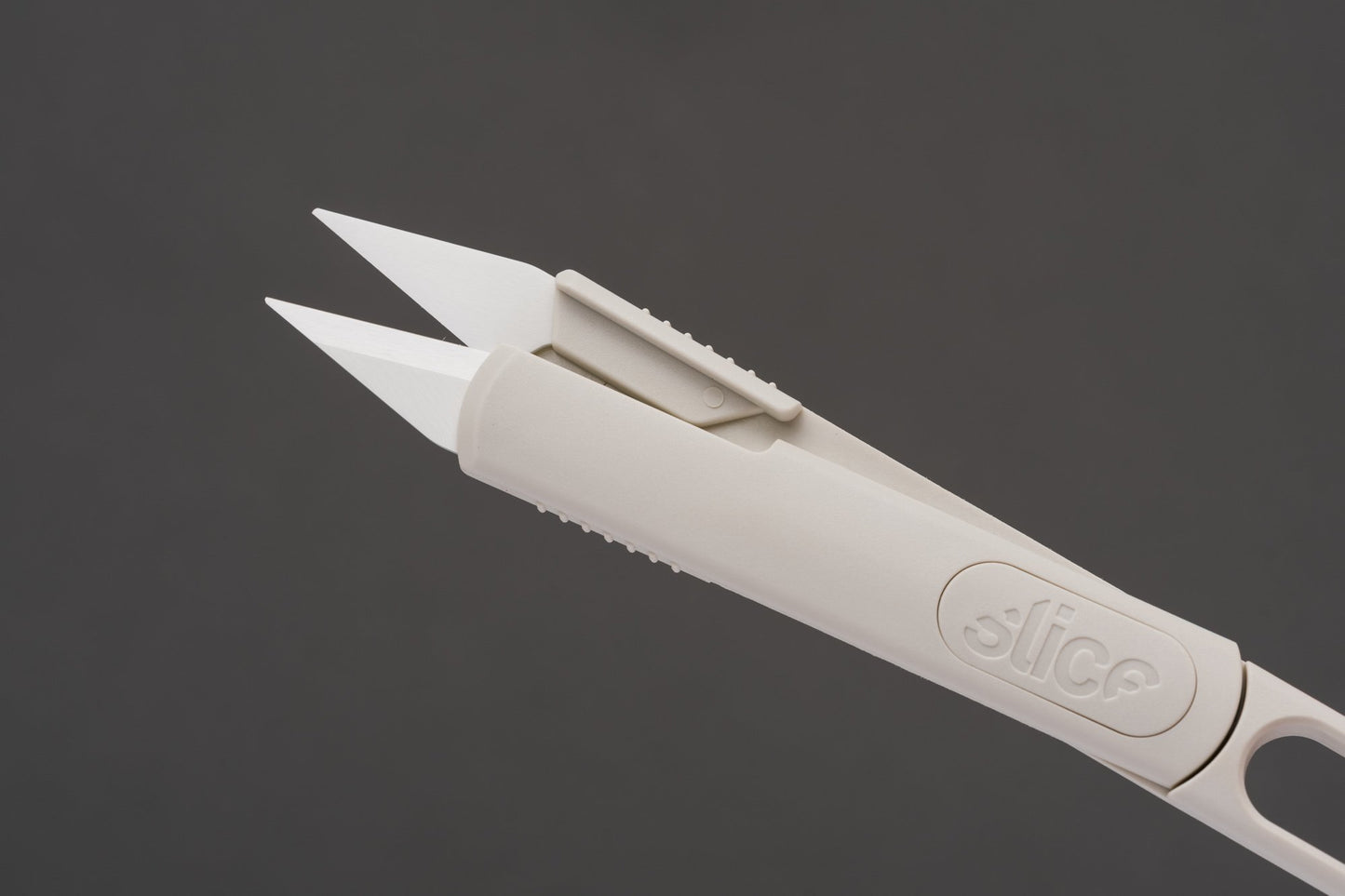
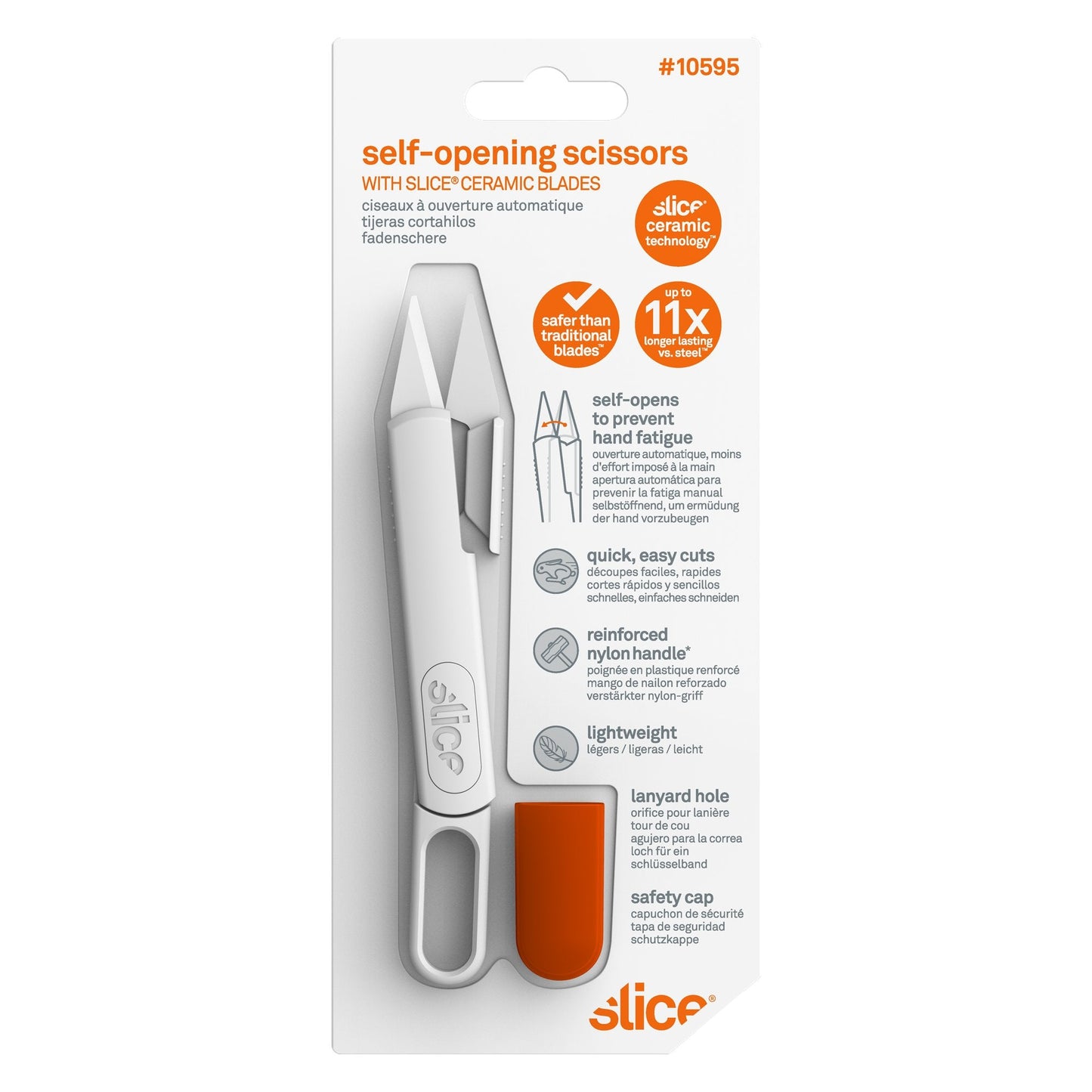
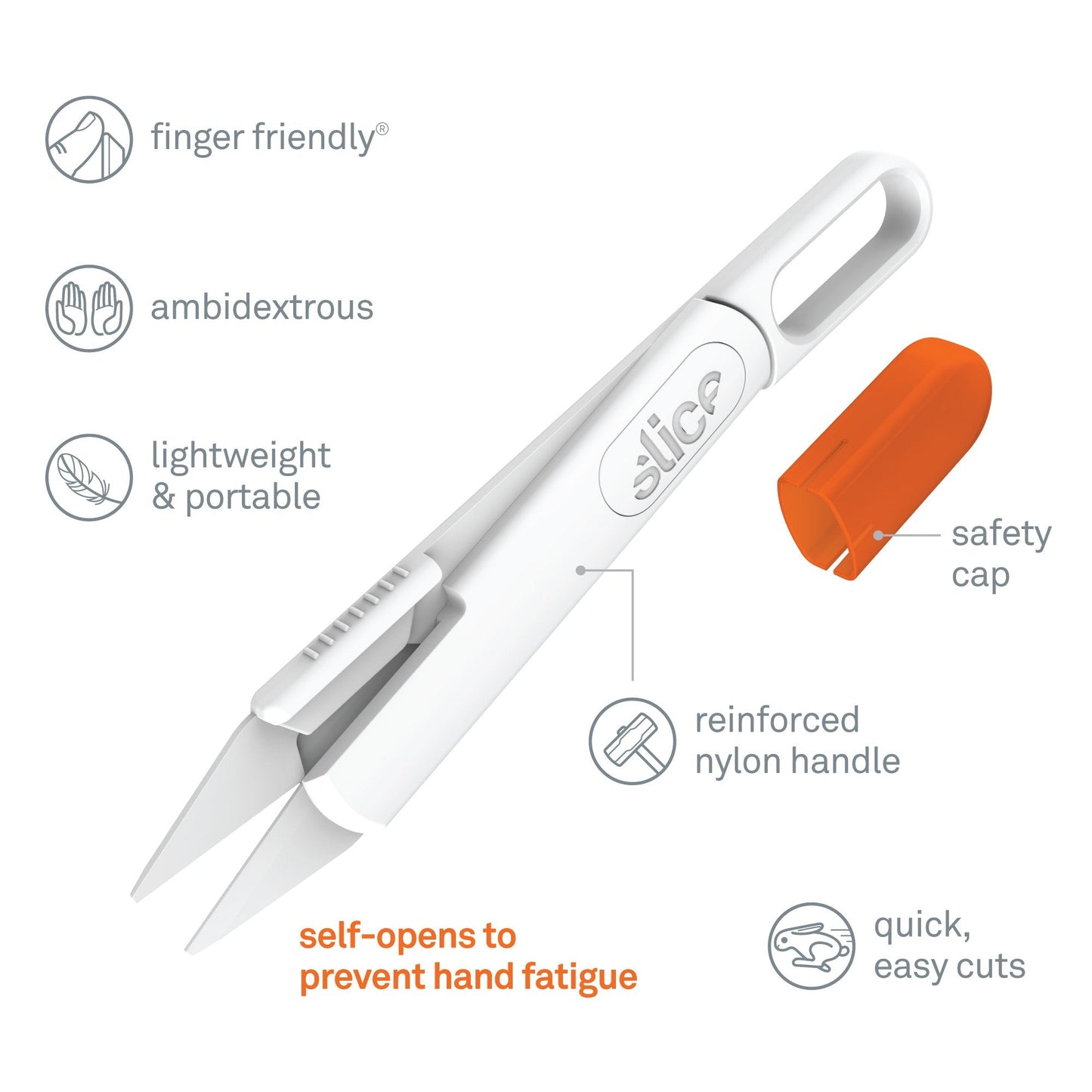
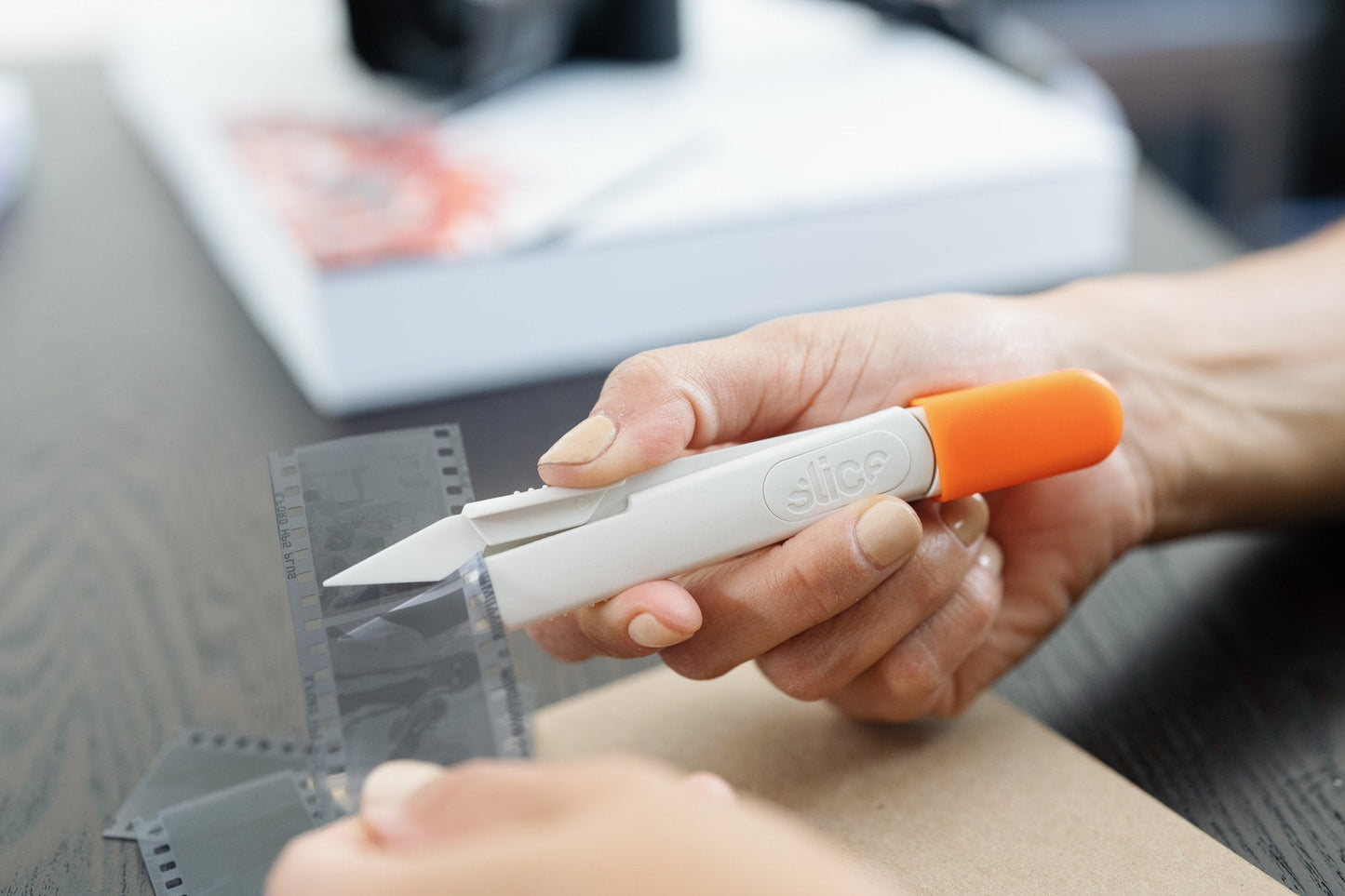


Videos
-
Self-Opening Scissors
-
Safety Scissors: For Adults and Children, Industry and Home
FAQ
What Are Sewing Snips?
Thread snips are open by default. To make the cut, the user squeezes the blades together. There’s no action required to reopen the blades, as an internal spring resets the blades to open once you stop squeezing. The squeezing motion takes place between the thumb and the forefinger, leaving the rest of the fingers out of the equation.
While this may not seem like a large difference, self-opening scissors require different and fewer muscles to operate them, which makes them ideal for repetitive cutting and those who have challenges with their dexterity.
Who Will Benefit From This Design?
Another group of people that benefits from snips for sewing is anyone who has dexterity challenges. This includes children, who are just developing their fine motor skills. It also includes anyone whose mobility is reduced through an acute injury or a chronic condition, such as arthritis, that makes the double action of opening and closing standard scissors too difficult or painful.
What Can I Cut With the 10595 Scissors?
While this tool could certainly handle cutting paper or thin card stock, the blades, at less than one inch long, are quite short, which makes them impractical for longer cuts.
How Are Slice Thread Snips Safer?
Traditional ceramic blades, although they are much harder than steel, are made with the same dangerously sharp grind. This puts the user at risk, especially when dexterity and fine motor control are at issue.
Slice developed a proprietary method of grinding blade edges that shortens the initial cutting zone and disperses the cutting force over materials such as skin. Our blades, including all our ceramic scissors, start at an effective and safe sharpness, and stay there up to 11 times longer than metal blades.











